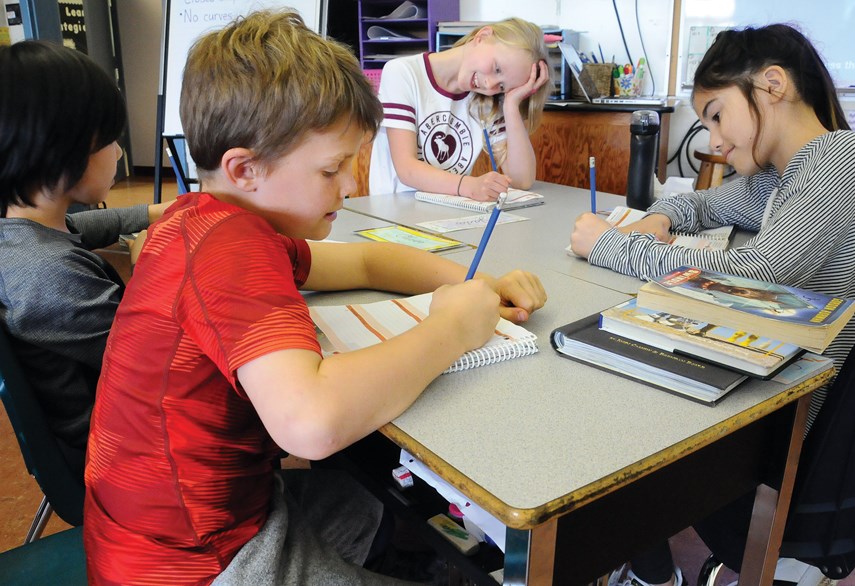They’re the report cards that teachers loathe.
But parents are apparently still reading them.
Chris Kennedy, superintendent of the West Vancouver school district, knows that, because every year at this time – shortly after the Fraser Institute’s annual school rankings come out – parents start phoning local schools. This year was no different.
“When you have limited information, you take what you can find,” says Kennedy.
It’s little wonder that West Vancouver schools attract attention. More public elementary schools in West Van are ranked in the top 10 per cent than any other area of the province, as measured by the Fraser Institute’s system of scoring schools based on standardized provincial academic tests in reading, writing and math.
This year both West Bay and Ecole Cedardale elementary schools in West Vancouver shared the number one spot with 19 other schools, including St. Edmund’s independent school in North Vancouver.
The West Vancouver schools, both International Baccalaureate schools with an emphasis on inquiry-based learning, were the only two public schools in the top spot, made up otherwise of private schools in the Lower Mainland.
Other West Vancouver public schools in or near the top of the Fraser Institute’s elementary rankings were Westcot, Caulfeild, Ridgeview, Pauline Johnson, Irwin Park, Gleneagles, Hollyburn and Chartwell.
North Shore private schools that were highly ranked include Mulgrave, St. Pius X, Collingwood, Lions Gate Christian, St. Anthony’s and Brockton.
Kennedy, like others in the public education system, says he doesn’t put a lot of stock in either the Fraser Institute rankings or the provincial Foundation Skills Assessments scores they are based on.
“They measure a really narrow list of areas. They look at reading, writing and math,” he said. “Notions of literacy and numeracy have really expanded in recent years.” But newer skills like digital literacy, complex problem solving and computational thinking are harder to measure and compare, he said.
Kennedy acknowledges, however, “There is definitely a thirst in the community for some kind of data.”
One thing the FSA scores show is that in West Vancouver “the public schools and the independent schools perform similarly well,” he said.
That’s despite a much more diverse population of students in public schools.
The two top-ranked elementary schools in West Vancouver, for instance, have almost 20 per cent of students learning English, and some of the high-ranking West Vancouver schools have an English language learner population of close to 30 per cent. In contrast, many of the top-ranked private schools had no English language learners. Many high-scoring private schools also had much lower percentages of special needs students.
As IB schools, both West Bay and Ecole Cedardale stress the type of teaching increasingly being put into practice as part of the new curriculum, but still scored well on more traditional tests. That ought to be reassuring to parents, Kennedy added.
The school system does use the FSA test results, he said – to spot areas where students or teachers may need extra support and to make sure students who are struggling academically don’t fall through the cracks.
Kennedy acknowledged that West Vancouver schools have social and demographic factors working in their favour – it’s an affluent area where many parents are highly educated themselves.
“Some people are quick to dismiss West Vancouver because of some of the advantages we have,” he said.
Kennedy said he prefers to see the Fraser Institute report as a tool to spark interest in public education, especially if it gets families in the door. “There’s attention paid to what’s going on in schools and what students are achieving,” he said. “There’s a whole bunch of really great stuff happening in our public schools.”



